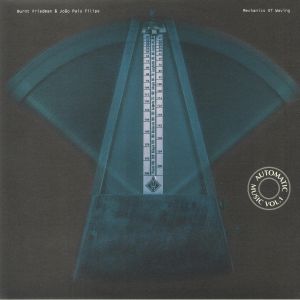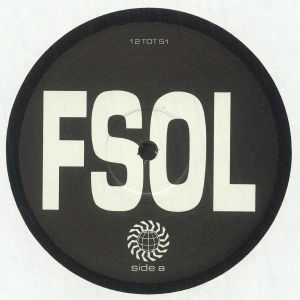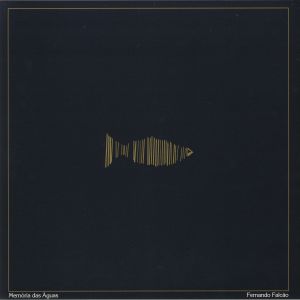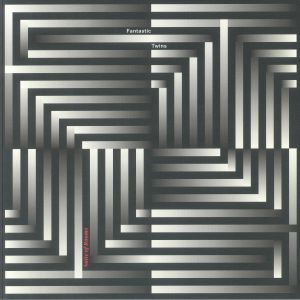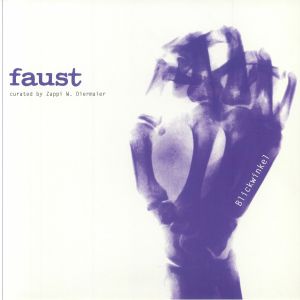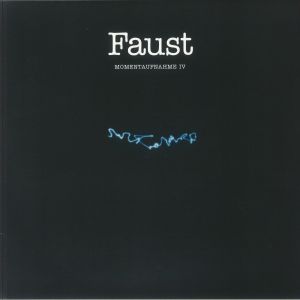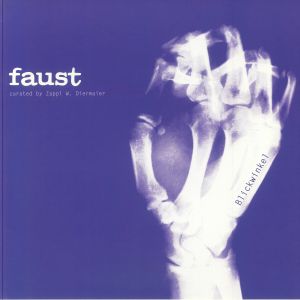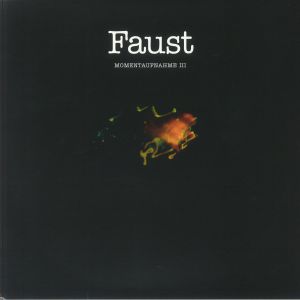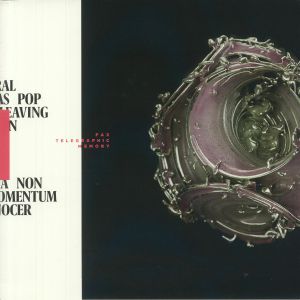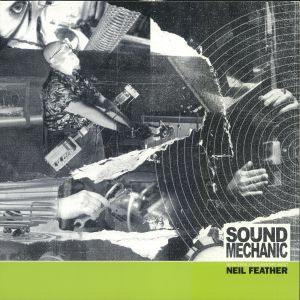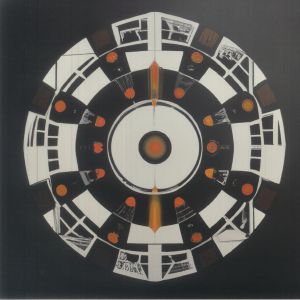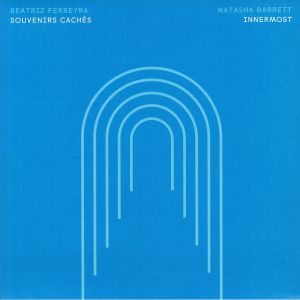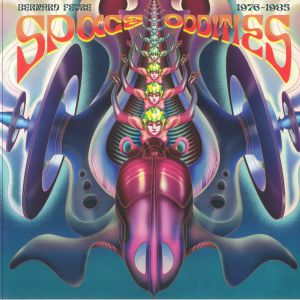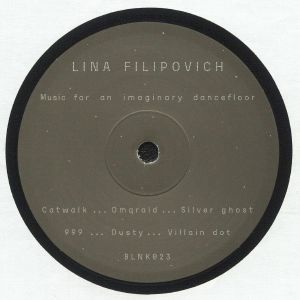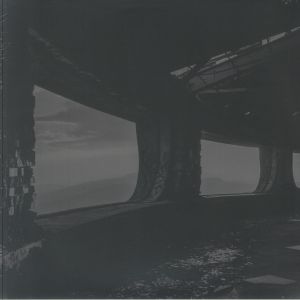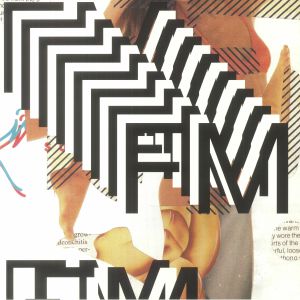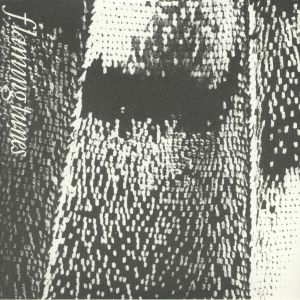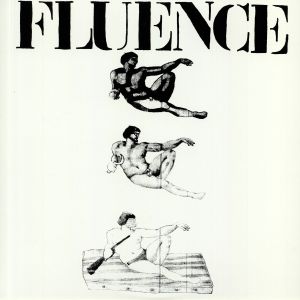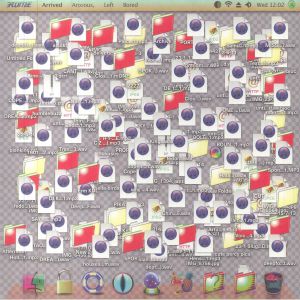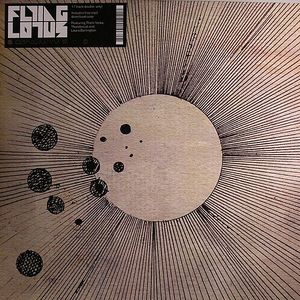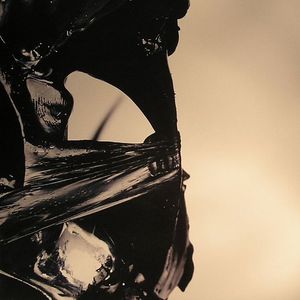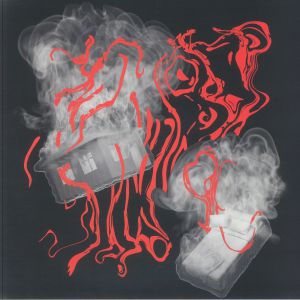Filter
Genre
Stock
Type
Artist
Featured
Release Title
Price
Tags
Back catalogue: Leftfield
Juno's full catalogue of Leftfield
Singles
Gespielt von: Wil Maddams, Tommy Finger Jr.
in stock $22.11
Cat: NONPLACE 053. Rel: 05 Jul 22
Review: Burnt Friedman and Joao Pais Filipe's collaborative efforts began back in 2018. The former using synthesis and electronics to paint subtly but incredibly specific aural pictures, the latter focusing on the drum and rhythmic end of things. At times their music feels entirely designed for the dancefloors of underground electronic clubs, in other moments it's something very different indeed.
This latest EP lives up to those broad brushstrokes. '21-30' is a lush, almost tropical sounding workout that offers a complex percussive pattern, and combines these with gentle shades of melody, harmony, hook and distorted note. '22-105' brings elements of glitchiness and robotics into the mix. Meanwhile, '18-140' would work well as a brooding building tool (or section) of a 'proper techno' mix, with '23-130' bridging gaps between the lot.
… Read moreThis latest EP lives up to those broad brushstrokes. '21-30' is a lush, almost tropical sounding workout that offers a complex percussive pattern, and combines these with gentle shades of melody, harmony, hook and distorted note. '22-105' brings elements of glitchiness and robotics into the mix. Meanwhile, '18-140' would work well as a brooding building tool (or section) of a 'proper techno' mix, with '23-130' bridging gaps between the lot.
in stock $20.47
Review: The first of two EPs leading up to The Future Sound of London's much anticipated 2025 album only serves to build anticipated cause they're as good as you would hope. Side A is a dark ambient odyssey that drifts through ethereal choirs into ritualistic rhythms before landing in a surreal suburban dreamscape. It's immersive, haunting and unpredictably brilliant. Side B begins with a more introspective tone but gradually shifts into unease with baroque minimalism with modular synths, breakbeats and drum machines coming totters with ambient field recordings and meticulously curated samples. It's as intricate as you would expect of this pair and is a masterclass in an atmosphere full of depth and surprise.
… Read more in stock $21.85
Cat: BL 006. Rel: 30 Nov 22
Review: Los Angeles-based The Black Lodge began as an intimate gathering place and ritual organised around exploring, sharing and experimenting with diverse forms of electronic music. This is the fourth collection of cuts from various artists of The Black Lodge multiverse. The Poetic Painter M, an alias of Nation chief Traxx, opens up the A-side with the dark late night acid of 'Elusive Clarity Of 1 Mind', followed by Pablo R Ruiz from Detroit providing the spooky lo-fi/sci-fi groove 'El Rey De Amor'. Over on the flip, Michigan's Fashion Flesh serves up a harsh experimental soundscape on 'Kisses' and closes with the tunnelling industrial funk of Fauna53's 'Jam1' (Asymmetrical weirdo orchestra edit).
… Read moreGespielt von: ISOUL8 (Volcov)
in stock $27.38
Alben
Berlin Atonal Vol 3 (gatefold 3xLP)
Cat: ATONAL 001. Rel: 26 Aug 15
Review: Berlin Atonal returned two years ago from a long hiatus, 23 years to be exact. After three tremendous festivals this decade, they now present us with their first recordings since 1984. These particular ones from the 2014 edition. Cabaret Voltaire (in this incarnation featuring only Richard H Kirk) was a true highlight and contributes "Microscopic Flesh Fragment" and "Universal Energy". One half of Demdike Stare Miles Whitaker went solo, presenting his truly unique take on techno, and the slow burning attitude of "Vagabond No. 7" is evidence of this. New Zealand's Fis also appears; rather uncategorisable as always on "Dist CL (Atonal Version)." On the third disc we have Northern Electronics main man and modern auteur Abdulla Rashim presenting two commissions from his captivating atmospheric set that year. Limited to 700 copies.
… Read moreGespielt von: Juno Recommends Techno, Kastil (Soul Notes/Stale)
in stock $40.09
Les Prieres Liquides & Sacrilege Veneration Vol 5 (2 x cassette)
Cat: GRVTS 019. Rel: 07 Oct 22
in stock $25.72
Selkie Reflections (LP with obi-strip)
Cat: SP 03. Rel: 22 Aug 24
Review: Originally conceived to accompany an installation at the 2022 Edinburgh Sculpture Workshop, Selkie Reflections is very much a thing of beauty, and a work in two parts. On the A-side, you have Alliyah Enyo re-working the original tape loops used at the show into a strange, enchanting, and immersive series of hypnotic and occasionally haunting vocal calls. Flip to side B, and Florian T M Zeisig, under the alias Angel R, takes all that and turns it inside out, onto its head, and down into the depths of the selkie's world - a mythical creature capable of shapeshifting between seal and human form which features heavily in Scottish folklore. Beguiling and enchanting, prepare to be submerged in a place of beauty, bliss and mystery.
… Read more in stock $27.10
Memoria Das Aguas (remastered) (LP + insert)
Cat: OMSD 006. Rel: 22 Mar 23
Review: For the first in a series of must-have reissues of obscure Brazilian treats, Optimo Music and Selva Discos have joined forces to offer up a new pressing of Fernando Falcao's superb 1981 debut, "Memoria Das Aguas". The eight-track set has long been considered something of a slept-on and hard-to-find classic, with Falcao conjuring up an octet of tracks that brilliantly join the dots between neo-classical movements, dreamy, percussion-led soundscapes (see the sublime "Amanhecer Tabajara (A Alceu Valenca)"), spiraling big band Afro-Brazilian jazz ("Ladeira Dos Inocentes"), intoxicating classical-jazz fusion ("Revoada") and experimental, beat-free sound collages ("Mercado"). In a word: exceptional.
… Read more in stock $24.89
Suite Of Rooms (transparent red vinyl LP limited to 100 copies)
Cat: HOS 003. Rel: 13 Feb 25
Review: French musician Julienne Dessagne is behind Fantastic Twins and here presents a new album inspired by the Greek myth of Theseus and the Minotaur. Adapted from her composition for the dance piece Meandres, the record is a textural world of leftfield techno, kosmische influences and cinematic soundscapes across five tracks. Along the way, we're told the artist explores mythology and symbolism while drawing from opera, film scores and literary works. Her set up included modular synthesis and layered vocals which lend things a rather psychedelic edge next to the strikingly atmospheric synths and subtle sense of unpredictability.
… Read moreGespielt von: Juno Recommends Leftfield, Juno Recommends Experimental
in stock $21.85
Textstar Plus (remastered) (gatefold 2xLP + MP3 download code)
Cat: FAITBACK 12LP. Rel: 27 May 22
Review: Before his work became reduced to a fine slither and he shifted into experimental, concept-driven realms, Jan Jelinek dropped some of the finest early doors micro house as Farben. Originally released on Klang Elektronik and now reissued by Jelinek's own Faitiche label, Textstar is a masterpiece of glitchy sample-based electronics with a subtle, implied funk. In some ways the sound has dated - it's very much of the late 90s-early 00s era it was first crafted in. But it's a sound that still engrosses and intrigues, reveling in microscopic detail and subdued moods while retaining a groove that comes through the best on eternally magnificent cut 'Beautone'.
… Read moreGespielt von: Joachim Spieth, Juno Recommends Techno
in stock $40.92
Review: It's absolutely mind-blowing that Faust released this in 1973. Well, if you know Faust then you know when they became active, and as such it's perfectly logical that they were putting records out when this was unveiled. However, the sounds it contains are so beyond the realms of what we associate with that age it's hard to understand how they ever conceived them.
Having said that, some tracks here are more 'normal'. For example the sweet acoustic folk-ish-ness of 'Flashback Caruso', or the strange, trippy jazz blues on 'Hermanns Lament'. But even these seem to have been born in a different world. Or parallel universe. Then you're given the cut and paste broken beat numbers like 'Don't!', and you realise just how ahead of its time this is.
… Read moreHaving said that, some tracks here are more 'normal'. For example the sweet acoustic folk-ish-ness of 'Flashback Caruso', or the strange, trippy jazz blues on 'Hermanns Lament'. But even these seem to have been born in a different world. Or parallel universe. Then you're given the cut and paste broken beat numbers like 'Don't!', and you realise just how ahead of its time this is.
Gespielt von: Juno Recommends Experimental
in stock $28.48
Review: Bureau B's latest release, curated by Faust's founding member Zappi Diermaier and featuring a collective of musical collaborators including Gunther Wusthoff, continues the band's legacy of radical innovation. Faust, the iconic Hamburg group known for their pioneering role in Krautrock between 1971 and 1974, has consistently pushed boundaries with their avant-garde approach. Their early work is celebrated for its uncompromising and experimental nature, which remains influential today. The new LP, Blickwinkel, offers a fresh perspective on Faust's sonic exploration. This album captures a moment of spontaneous creation, merging industrial noise, unsettling ambience, and psychedelic motorik into a cohesive six-track experience. The record reflects the band's commitment to synchronicity and chance, embodying the spirit of their Krautrock roots while embracing contemporary dynamics. Recorded in a collaborative spirit with Zappi Diermaier on drums, Dirk Dresselhaus on bass, and Elke Drapatz handling electronic effects, Blickwinkel represents a continuation of their experimental journey. Unlike the previous Daumenbruch, which featured long-form compositions, this album delivers a more varied auditory experience with six distinct tracks. The session, held in a home studio, was characterised by a deep empathetic connection among the musicians, resulting in a diverse range of soundsifrom drones and delays to unexpected melodic interventions by Uwe Bastiansen. Each track disrupts traditional stylistic boundaries with elements like baroque strings, quirky horns, and dynamic phasing effects, creating a constantly evolving soundscape. Blickwinkel shows Faust's enduring ability to innovate and redefine their musical expression and their ongoing creative process.
… Read more in stock $35.12
in stock $29.58
Review: Known for their pioneering Krautrock era from 1971 to 1974, Faust remain a symbol of innovation and avant-garde experimentation. This album encapsulates a moment of unfiltered, collective creativity, presenting six tracks that delve into industrial noise, eerie ambience, and psychedelic motorik rhythms. Under Diermaier's guidance, this iteration of Faust embraces spontaneity and a democratic approach to music, free from external influences. The creation of Blickwinkel involved Diermaier's drumming sessions at Dirk Dresselhaus's (Schneider TM) studio, accompanied by electronics expert Elke Drapatz. This unplanned, collaborative effort led to a range of auditory experiences, contrasting sharply with their previous release, Daumenbruch, which featured more extended, contemplative pieces. Listeners can anticipate a sonic whirlwind filled with drones, rhythmic clamor, and eclectic textures, accented by unexpected elements like baroque strings, lively horns, and trippy effects. Uwe Bastiansen (Stadtfisch) adds melodic layers that complement Dresselhaus's driving bass, infusing the album with its distinctive pagan soundscape. Faust's unwavering dedication to breaking new ground and crafting a truly original auditory experience remains nothing short of spectacular.
… Read more in stock $33.17
in stock $29.04
in stock $28.20
in stock $22.27
Review: James Ruskin and Mark Broom return with a third installment of their wayward electronica project, The Fear Ratio. Far from the bruising techno they normally throw down, "They Can't Be Saved" is an introspective trip into the knotted realms of hip-hop influenced machine music produced down to the nth degree. The beats crunch hard and the atmospheres come shrouded in mystery, slotting in perfectly on the legendary Manchester label Skam. Both a wonderful revival of leftfield electronica and a vital, fresh approach, this third album is another triumphant one. Slap this one on and revel in the sound of two hugely accomplished producers cutting loose and having fun in the studio.
… Read more in stock $27.65
in stock $25.43
Review: Berlin's Felix K has always made an art form of techno. His take on the genre is about space, weight and sound design as much as anything. He shows that on the Nullpunkt label with a double pack of expertly realised cuts. 'Sudbaism' is a dubby and cavernous opener with plenty of atmosphere to it then 'Noism' darts about the stereo field with jerking rhythms and snatched vocal yells underpinned by vast bass. Elsewhere there is plenty of moody menace to the empty underground caverns of 'Loss' while 'Life' is like being trapped in the middle of a factory production line in full flow. An evocative work, for sure.
… Read morein stock $27.67
Last Exit To Chickenley (2xLP + insert limited to 300 copies)
Cat: BKEDITDSV 037. Rel: 21 Sep 23
in stock $26.96
Gespielt von: Juno Recommends Experimental
in stock $25.43
Mind Games (remastered) (LP + insert)
Cat: SL 112. Rel: 23 Mar 22
Review: This reissued LP from 1984 follows Strangelove's previous issue of Sjunne Ferger's early singles and soundtrack work on Children's Mind. Restored and fully remastered from the original tapes, it comes with new liner notes and photography. A sonic snapshot of Scandinavia's early '80s electronic/progressive movements, Mindgames is a singular album with a Balearic outcome that showcases a lifetime of musical and personal exploration by the Orebro native. As a child jazz drummer prodigy, arts venue operator, music teacher and Aikido practitioner, a bewildering array of personal and creative influences are channeled into Ferger's only long player.
… Read moreGespielt von: Juno Recommends Downtempo, Your Name (Legalize Lambada)
in stock $25.72
in stock $22.56
Musica De Baixa Fidelidade (reissue) (limited LP + insert)
Cat: ZAM 027LP. Rel: 21 Mar 25
Review: Holuzam reissues Toze Ferreira's groundbreaking 1988 sound art LP Musica de Baixa Fidelidade long after it has been heralded as a pivotal release in Portugal's experimental music scene. It was created during Ferreira's time at the Institute of Sonology and plays with musique concrete, noise and abstract sound across masterful compositions like 'More Adult Music' and 'This Is Music, As It Was Expected.' With elements of piano, bells, and processed voices, it creates a tactile, immersive experience that challenges conventional music structures. This first-ever vinyl reissue includes the original artwork and a new insert with remastering done by Taylor Deupree. Ferreira's blend of technical skill and emotional depth is mesmerising here.
… Read more in stock $20.47
in stock $29.04
Souvenirs Caches/Innermost (limited LP + MP3 download code)
Cat: PS 005. Rel: 22 Mar 21
in stock $27.10
Space Oddities 1976-1985 (LP + insert + MP3 download code)
Cat: BB 175LP. Rel: 19 Sep 24
Review: Among the figureheads of French disco, Bernard Fevre, better known as Black Devil, probably had the shortest-lived career, but was among the brightest minds of them all. Although his first album Disco Club, released in 1978, went unnoticed at first, it has since become a must-have, a collector's item which has led a lot of listeners to further investigate his extensive work. Fevre experimented with such a wide gamut of styles that it has been hard not to lose track; though perhaps one such aide l'equilibre is this newest compilation/lookback record, Space Oddities 1976-1985. Spanning a huge swathe of Fevre's records, some more touted and others more waylaid, this compilation can only begin to help us firmly grasp the cosmic breadth of the artist's work, some of which is indubitably club-bound, some of which is comparatively cinematic and scenic. Here's hoping Giordano Bruno was wrong about the open universe - Fevre's explorations are so expansive that they verge on boundlessness.
… Read moreGespielt von: Alexis Le-Tan, Doo
in stock $25.16
Music For An Imaginary Dancefloor (LP limited to 150 copies)
Cat: BLNK 023. Rel: 22 May 24
Review: Lina Filipovich's Music for an imaginary dancefloor is an exploration of the boundary between club music and the abstract, guided by analogue synthesizers and a vivid imagination. Composed from improvisations between June and December 2022, the LP delves into ethereal realms with nervous energy and atmospheric textures that evoke imagery of surreal landscapes and otherworldly experiences. Unlike her previous works which focused on deconstructing existing sounds, Filipovich collaborates with the machines themselves in this album, allowing their aesthetics to intertwine with her creative vision. The result is a collection of tracks that pulse with intensity, drawing listeners into a dreamlike state where reality blurs with fantasy. The album's sonic landscape is rich with atonal drones and intricate delays, creating a sense of unease and wonderment. It's as if the music is speaking a language of spirits, beckoning listeners to explore the allure of the dark and the unknown. Miles Whittaker of Demdike Stare lends his mastering and additional mixing expertise to enhance the album's sonic depth, further immersing listeners in its hypnotic embrace. Overall, Music for an imaginary dancefloor is a stunning trip that defies traditional categorisation. It invites listeners to step into a realm where the boundaries of reality dissolve, leaving only the pulsating rhythms and haunting melodies to guide them through the darkness. Lina Filipovich's vision is realised with remarkable clarity and depth, making this album a standout release in the realm of experimental electronic music.
… Read moreGespielt von: Juno Recommends Experimental
in stock $26.53
I Am The Dirt Under Your Fingernails (reissue) (limited 2xLP)
Cat: FD2LP 142. Rel: 12 Dec 24
Review: This reissued album from Justin K. Broadrick follows the sold-out 2022 CD release from Fourth Dimension Records. Since 1983, Broadrick has worked under the Final moniker, evolving from power electronics to a more expansive yet still intense sound over the years. This record features nine tracks all named and numbered after the title and they delve into murky textures, crepuscular guitars, harsh noise and dissonant bursts. The relentless, unforgiving sound captures anger and despair and prove Broadrick's ability to transform early power electronics into contemporary, boundary-pushing forms with deeper emotional resonance.
… Read more in stock $24.61
Firnis Der Civilisation (LP + booklet limited to 300 copies)
Cat: FELT 007. Rel: 23 Apr 24
Review: "Tracks play out like beatless symphonies of wayward folk music who's basement transmissions have been intercepted from the ether; a stirring limbo of grotty emotions that inspire and conflict in equal measure. Portals into zones of sampladelic oddities, haunted vocals and scatty euphoria that is collectively driven by an (un)willingness to straddle familiar pastures." Firnis DC certainly paint a pretty vivid picture of their latest album, on which things are stripped back to the basics, allowing each individual element to breathe properly. This space really works, creating the sensation of endlessness in sound, and a depth of ideas that you can fall through, slowly descending into a world of strange post-rave ambience, looking up at fluffy clouds passing overhead the morning after that night before.
… Read moreGespielt von: Bantam Lions, Juno Recommends Ambient/Drone
in stock $20.47
Under The Arches (LP + postcard)
Cat: ACOLOUR 050. Rel: 04 Mar 25
Brother James Plays JS Bach's Erbarm Dich Mein, O Herre Gott On The Great Rissington Organ, Bertrand Russell Gives Sound Advice (3:14)
Review: Simon Fisher Turner's latest work blends field recordings with electronic textures, creating an immersive soundscape that invites deep listening. The composition unfolds gradually, with ambient layers that mix organic sounds with subtle synthetic elements. Turner's use of urban and natural sounds creates a reflective journey, where every detail adds to the overall mood. It's a delicate balance of the organic and artificial, drawing listeners into a world of sound that is both intimate and expansive.
… Read more in stock $23.50
Review: Renowned composer Simon Fisher Turner's new album Instability of the Signal comes on limited edition black vinyl with extensive sleeve notes. It was produced with Francine Perry and across 13 tracks it delves into sound exploration inspired by Breda Beban, Hrvoje Horvatic, and poet Harold Pinter, whose works appear on the record. The artist integrates four elements: slivers, sounds, strings, and Singing where 'slivers" are brief audio snippets from Salford Electronics reimagined into track foundations. The album also features string arrangements by the Elysian Collective and overall the record reflects Fisher Turner's rich career as it blends experience with introspective soundscapes and personal expression.
… Read more in stock $24.89
Review: It has taken five years for FKA Twigs to follow up her astonishing first album, "LP1". With that kind of timeframe, you can't help but have high expectations for the finished product, expectations "Magdalene" more than meets from the off. An artist in the truest sense - with every step and stage in the recording process controlled by her - it's an accomplished comeback for a woman who in the last half decade has experienced both personal loss and major physical challenges. Don't expect more of the same, then, but instead a talent finding new purpose and new confidence following difficult times. With the ever-impressive Nicolas Jaar giving a helping hand, the result is a raw, honest record that's deeply personal, full of self-reflection and, ultimately, accepting and positive. Not to mention destined to be on repeat. Her position as one of the UK's most vital and compelling acts re-confirmed.
… Read more in stock $23.50
Review: FKA Twigs' latest LP 'Caprisongs', widely known as her poptimist opus (contrasting to her earlier experiments) now gets a luminous vinyl pressing via Young. It does well to justify her reinvention after breaking up with a disgraced actor whose name we shan't name: the album is a colossal collaborative affair, and even come with a carnivalesque duet with pop king The Weeknd ('Tears In The Club'). The melodic abandon that follows is just as apt.
… Read moreGespielt von: Juno Recommends Leftfield, Juno Recommends Experimental
in stock $34.84
in stock $23.50
Eusexua (gatefold clear vinyl LP + booklet + poster + sticker)
Cat: 756786 06434. Rel: 24 Jan 25
Review: It's rare that an artist is able to craft a sound so unique that it feels like it's pulling from a completely different world. FKA twigs does just that on this release, where the beats are dark and hypnotic, underscored by her ethereal voice that somehow cuts through with precision. There's a cinematic quality to the production, a sense of space that makes each moment feel significant. It's both jarring and beautiful, her experimental approach pushing boundaries without ever feeling out of place.
… Read more in stock $35.94
Eusexua (gatefold clear vinyl LP + poster + booklet + sticker)
Cat: YO 381LP. Rel: 27 Jan 25
Review: A total departure from her last album Magdalene, Grammy-nominated British multidisciplinary artist FKA Twigs is firing on all cylinders on Eusexua. The slogan "Eusexua is a practice. Eusexua is a state of being. Eusexua is the pinnacle of human existence" can be found everywhere online and in London right now, even sprayed onto the pavement in places - what Eusexua actually is though is anyone's guess, which is half the fun I suppose. While 2019's Magdalene was a heartwrenching collection of string-led ballads covering extremely morbid topics, with the sensational and fun 'Caprisongs' in 2022 bridging the five year gap, Eusexua is going all in on techno sensibilities, helmed by Koreless, Two Shell and a host of other high-class beatmakers. The title track, released in tandem with a teaser for 'Drums of Death', is an Opus III style trance/techno slow-burn that erupts into a thumping bassline towards the hindlegs of the song. Twigs seems to be styling herself predominantly after Kirsty Hawkshaw during the 'Mind Fruit' era, both in the bold choices of hair and going so far as to cover 'It's A Fine Day' at a Vogue Word event. Garnering a cultlike status, Eusexua is a blend of eclectic influences with the finest talent at hand working on it, tied together with Twigs' personal experiences living in Prague and falling in love with an underground techno scene without borders. The only question remaining, really, is what does Eusexua mean to you?
… Read moreGespielt von: Juno Recommends Hip Hop/R&B
in stock $37.33
in stock $27.10
Gespielt von: Mimi
in stock $24.06
Review: Originally released in 1985 on cassette, this sel- titled record from Flaming Tunes was their only one. It's a cult home recording that came after collaborative time spent together by childhood friends Gareth Williams and Mary Currie and is influenced by Williams's time spent travelling India and studying classical Kathakali dance. The music was recorded in a house in South London and makes use of piano, bells, clarinets and percussive sounds that are layered up into simple arrangements. The lo-fi melodies, oblique rhythms and hypnotic qualities of it make it a gold standard for anyone who prides themselves on unearthing the more outlier albums out there.
… Read moreGespielt von: Kaoru Inoue, Juno Recommends Experimental
in stock $24.33
Intuitive Word (limited white vinyl 2xLP)
Cat: GOST 020. Rel: 27 Apr 23
Review: It's not always easy to keep up with the output of the relentlessly prolific Flaty, a core tenet of Moscow's Gost Zvuk as well as pursuing his own endeavours. From hard-edged experimentalism and dub-scuffed glitch to oddball ambient and wayward techno, he's a truly original spirit, and his new album continues that trend with yet another dimension to his sound. Intuitive Word is imbued with a strong pop and RnB slant which bleeds into the sample sources and the strong sense of melody, but still this remains a leftfield, compelling release for those with an experimental appetite. Quite how Flaty has squared off these contrasting forces is hard to express, but take a listen to 'Intension' with its tripped out beat and synth arrays shot through with vocal licks and you begin to get the picture. It's dope as hell and oh so sweet on top, like nothing else out there right now.
… Read more in stock $37.06
Music For Shared Rooms (limited 2xLP + MP3 download code)
Cat: MORR 189LP. Rel: 03 Aug 22
Gespielt von: Juno Recommends Experimental
in stock $25.54
Fluence (Record Store Day 2020) (reissue) (Record Store Day 2020) (limited numbered LP)
Cat: ETAT 14. Rel: 07 Sep 20
Gespielt von: RUSTAM OSPANOFF., Kaoru Inoue
in stock $38.99
in stock $21.75
Gespielt von: Exium, Ennio Styles, Daniel Drumz, Claus, Spacewalker (Balance), DJ Gilla, Roman Filippov, Stupid Human, The Black Dog, Arnaud Le Texier, Rob Da Bank, Mary Ann Hobbs, Juno Recommends Experimental, Kid Chocolat / Poor Records, Gilles Peterson, Martyn, Fudge Fingas, Uffe
… Read more in stock $35.94
Review: Arriving with some truly mind bending artwork from controversial guro manga artist Shintaro Kago, the new Flying Lotus album You're Dead! Is quite alot to take in upon first listen. Some nineteen tracks deep, Steven Ellison uses all the available space to draw you deep into the afterlife as he sees it, veering through heavily psychedelic jazz passages and next level beat explorations that demand you pay full attention. The iconic Herbie Hancock leads a high profile cast of contributing artists to Fly Lo's fifth studio LP and his most ambitious to date with Kendrick Lamar, Captain Murphy, Snoop Dogg, Angel Deradoorian, Thundercat and Niki Randa also adding to what is a transcendental listening experience.
… Read moreGespielt von: Fat dog, Slothboogie, Front Yard, Juno Recommends Experimental, Jorge Caiado / Conversion, Earl Jeffers, Groove College, Stray
in stock $35.94
Yasuke (Soundtrack) (red vinyl LP + MP3 download code with obi-strip)
Cat: WARPLP 334. Rel: 24 Sep 21
Review: The aural aesthetics of Flying Lotus go hand-in-hand with film scores. There was the original music contributed to the Blade Runner 2049 anime prequel, tunes for Carole & Tuesday, and the small matter of his label Brainfeeder's new film division. Now we have Yasuke, his first full score.
If you're unaware, Yasuke is the Japanese animated series that's been a hit among fans of Far Eastern cartoons since arriving on Netflix. So far so factual, what about the actual tracks themselves? Well, this collection of arrangements is at once very FlyLo, and then not that FlyLo at all. Yes, there's plenty of deep genre diving going on, nodding to freewheeling jazz, prog rock, trap and more. But here it's much more minimalistic than many might be used to - resulting in a thoroughly original approach to soundtracking a samurai story, void of stereotypes, while never fully breaking from tradition.
… Read moreIf you're unaware, Yasuke is the Japanese animated series that's been a hit among fans of Far Eastern cartoons since arriving on Netflix. So far so factual, what about the actual tracks themselves? Well, this collection of arrangements is at once very FlyLo, and then not that FlyLo at all. Yes, there's plenty of deep genre diving going on, nodding to freewheeling jazz, prog rock, trap and more. But here it's much more minimalistic than many might be used to - resulting in a thoroughly original approach to soundtracking a samurai story, void of stereotypes, while never fully breaking from tradition.
Gespielt von: Lexx, Juno Recommends Leftfield
in stock $27.92
Gespielt von: Exium, Girls Of The Internet, Rivet, Lerosa, Nuno Dos Santos, Philogresz, Mary Ann Hobbs
in stock $35.94
in stock $28.75

 USD
USD







